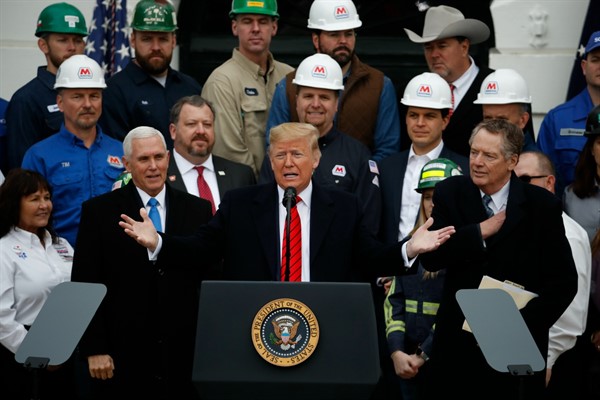On the heels of Sen. Josh Hawley’s call in an op-ed to abolish the World Trade Organization, U.S. Trade Representative Robert Lighthizer also took to the opinion pages of The New York Times to declare the end of “the era of offshoring.” President Donald Trump’s aggressively unilateral trade policies, naturally, got most of the credit. As with Hawley’s fuzzy plan for a club of “free nations” aligned against China, it’s not quite clear whether Lighthizer thinks protectionism should still be part of the plan to “Bring the jobs back to America.” But with the United States potentially on the brink of another Great Depression, battered by the coronavirus pandemic, two prominent officials within a week calling for protectionist-sounding policies is unsettling, to say the least.
Lighthizer argued in his op-ed, published just a week after Hawley’s, that American companies were already rethinking their “craze” for offshoring, in his words, thanks to the Trump administration’s strict enforcement of trade deals, renegotiation of allegedly bad ones and confrontation with China. Lighthizer insisted the pandemic is accelerating that trend and, along with the administration’s trade policy, will deliver on Trump’s promise to bring back manufacturing jobs.
But the numbers don’t support Lighthizer’s claims. In fact, Trump’s “America First” protectionism is more likely to be hurting than helping the manufacturing sector. Lighthizer offers a few examples of companies he says have “either scrapped offshoring plans or announced decisions to move production to the United States.” And growth in manufacturing output and jobs did accelerate a bit in Trump’s first two years, compared to the final years of the Obama administration. But that growth was short-lived, as manufacturing started weakening more than a year before the pandemic-related shutdowns hammered the economy this spring.

